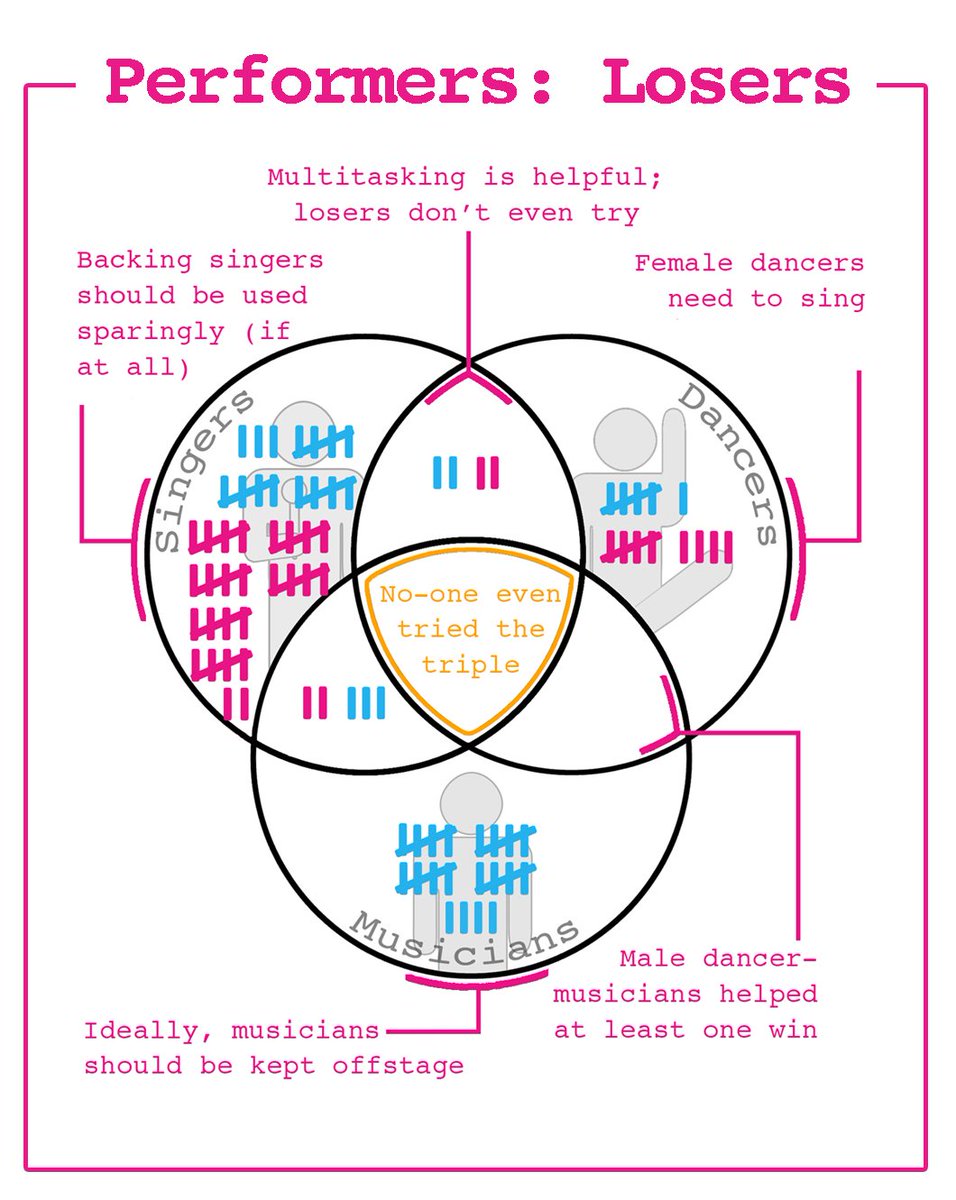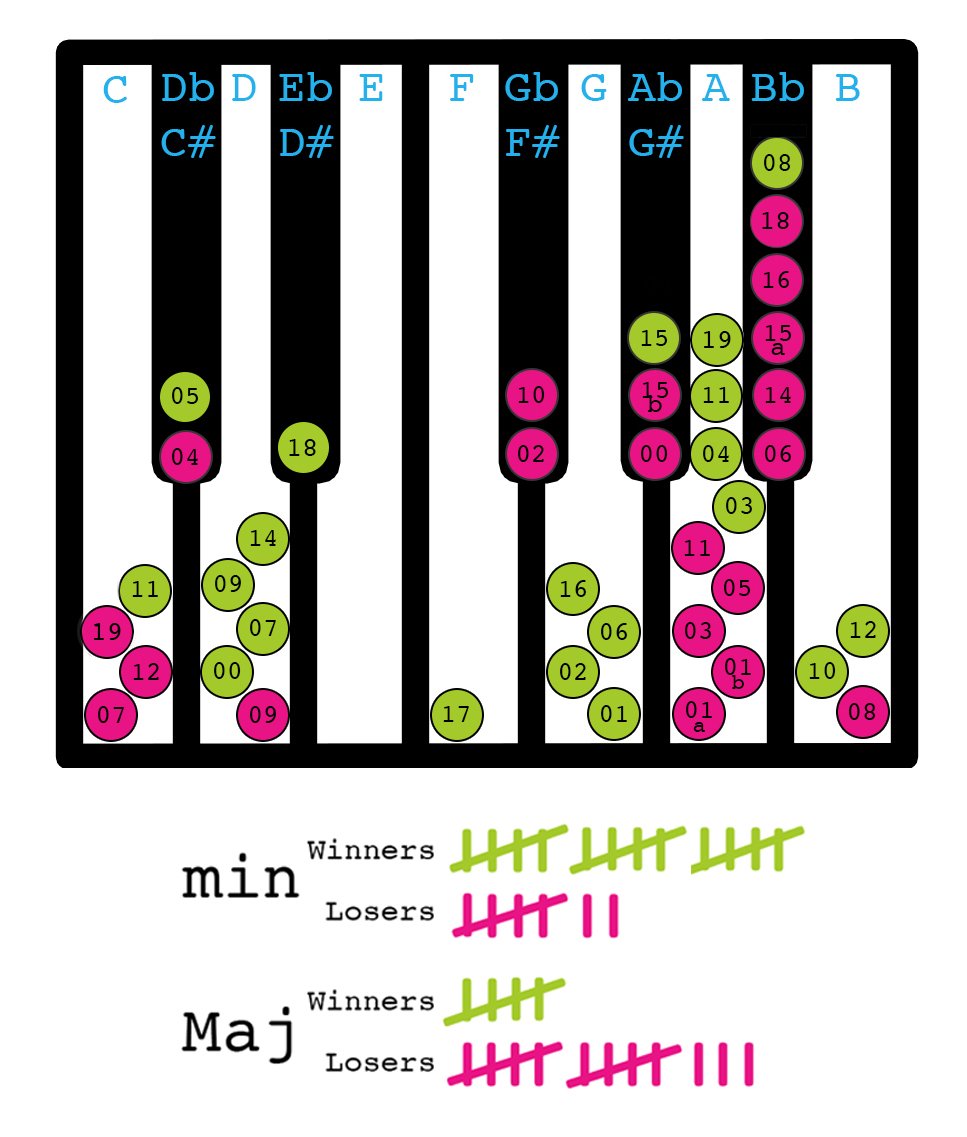Modern Eurovision winners aren't the bright, happy, clap-along pop songs people always assume that they are. In fact, most winners in the last 20 years have been written in a minor key... #Eurovision

Once a staple of the competition (and the one thing that everyone ALWAYS mentions, every year) there hasn't actually been a winner that's used a key change in the last ten years. Only two songs of the final 26 this year use them: Denmark and Hungary. #Eurovision

#Eurovision
*A six semitone interval is known as 'diabolus in musica' (a.k.a. The Devil In Music) because it's so deeply unpleasant.
This is the beat of the song; the speed at which you'd tap your foot along to it. There's no 'winning' tempo as such (the speed of winners has a huge span. with big gaps), but there are some definite ones to avoid: 128bpm and 85bpm.
#Eurovision

Eurovision songs have an upper limit of 3 minutes.
3 minutes of a 128bpm beat gives you exactly 96 bars.
96 is divisible by 2,3,4,6,8,12,16 – all of which are the building block of pop music phrasing #Eurovision

Not usually an issue, but as a 3/4 song won last year for the first time in over 20 years, it's worth bringing up. 4/4 is by far your best shot at winning. Experimenting with outré counts is something you can do in your jam sessions. Just play the hits here.
Eurovision lyrics are uniformly bullshit, so there's no point wasting time making them good. However, there are certain keywords that crop up time and time again. Darkness/bad weather are GOOD; light/sunshine are BAD. And don't call anyone 'Baby'. Ever. #Eurovision


Again, not usually an issue, but this year has seen something interesting happen. Generally, since the contest relaxed the language rules in 1999 (allowing countries to sing in whatever language they want) your best bet has been to sing in English #Eurovision

– Estonia sings in Italian.
– Denmark sings phrases of Icelandic.
– Cyprus's hook is in Spanish.
A pretty canny move that we in the business call SHAMELESS FUCKING PANDERING.
Similarly, if your entrant was born in a different European country to the one they represent, you can probably soak up a few votes from their homeland.
– Norway's Alex Rybak was born in Belarus
– Cyrpus's Eleni Foureira was born in Albania (lives in Greece)
Getting a Swede in to write your song is a great way to boost your chances. In the last ten years, Swedes have been responsible (in whole, or in part) for 50 of the 257 songs to make the Saturday final. F I F T Y. 5x more songs than they entered themselves.
This isn't musical, per se, but it's important to make sure that the people you invite on stage (maximum of six) don't do anything to jeopardise your chances. This is what winners (and losers) have done since 2000 #Eurovision


Also not musical, but has a huge effect on the final result. This is how your draw on the night affects your chances. Green marks the winning entry; pink marks the last place... #Eurovision







